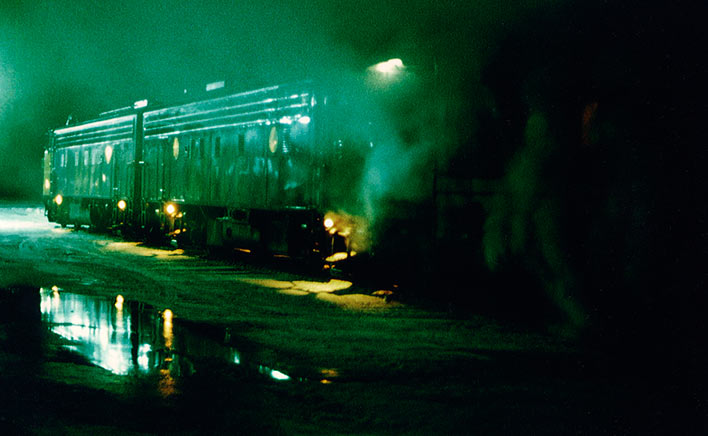
Memory is a central aspect of cinema. It is by cinema – or, to be more precise, by the moving images – that we recall past events as if cinema could be a storage of time. That quality is what wonder us when we see films. Memory triggers our emotions. That’s why we decided to dedicate Porto/Post/Doc’s theme to the Archive because cinema itself is a kind of archive of human memory. In a certain way, we will privilege films that use archival footage, but also, we will screen past films that allow our memory to re-live other worlds and other emotions.
Our main Focus will be dedicated to Jean Rouch, the mythical French author, about who we celebrate his 100th birth anniversary. Rouch’s films – now restored – deal with the idea that our world must be mediated by cinema, and by a cinema that is free from genre expectations (mainly the fiction/non-fiction divide). To participate in this homage is to rediscover films that are central to the history of the 20th century moving images. This digression to the past will be also part of our Focus on the Czech filmmaker Miroslav Janek, in a carte blanche by Jana Sevcíková. Films like The Unseen can show us how we deal with different communities (in this case, blind children) and their ways of living. The third focus on an author brings us three films by Peter Mettler, a filmmaker who, in the tradition of Canadian cinema, seeks to reflect on the world and what he sees around him. Picture of Light, one of his most important works, reflects even on this world when confronted with the beauty of the northern lights. The festival will celebrate this memory with different time capsules: Malick and his Voyage of Time: Life's Journey; Campillo in his quest to portray a memory of the AIDS epidemic in the 90s France, in 120 battements par minute; or the path taken by Mark Reeder in the 80s West Berlin, in the B-Movie: Lust & Sound in West-Berlin 1979-1989. These are films of an archive of history, of a memory that still lives.
As a key point of our programme, we will detail the idea of Post-Memory. This focus, which includes a film programme and the Forum of the Real (one-day seminar with specialists), is done in partnership with the Centre for Social Studies of the University of Coimbra. The aim of the programme is to account for the use of the archive as a means of producing new documentary narratives and for the preponderance of this method to interrogate the history of the twentieth century. In addition, this programme will focus on the use of the archive as a means of activating a post-memory, that is, a critical analysis done by new directors who have not seen the facts they are dealing with, but on which they activate a critical position and deconstructing the “official” memories. The film programme will feature works by female authors who have dedicated themselves to the archive and to the colonial or dictatorial memory, such as Paz Encina, Albertina Carri and Filipa César.
A film festival is a place for the future – to screen new films – but also a window to a past that needs to be rediscovered. A window to all the memory of the world.
Programmes:
- Archive and Post-Memory
- Cinema-Truth: 100 Years of Jean Rouch
- Focus Miroslav Janek
- Peter Mettler Expanded
- Different films in the regular programmes of the festival